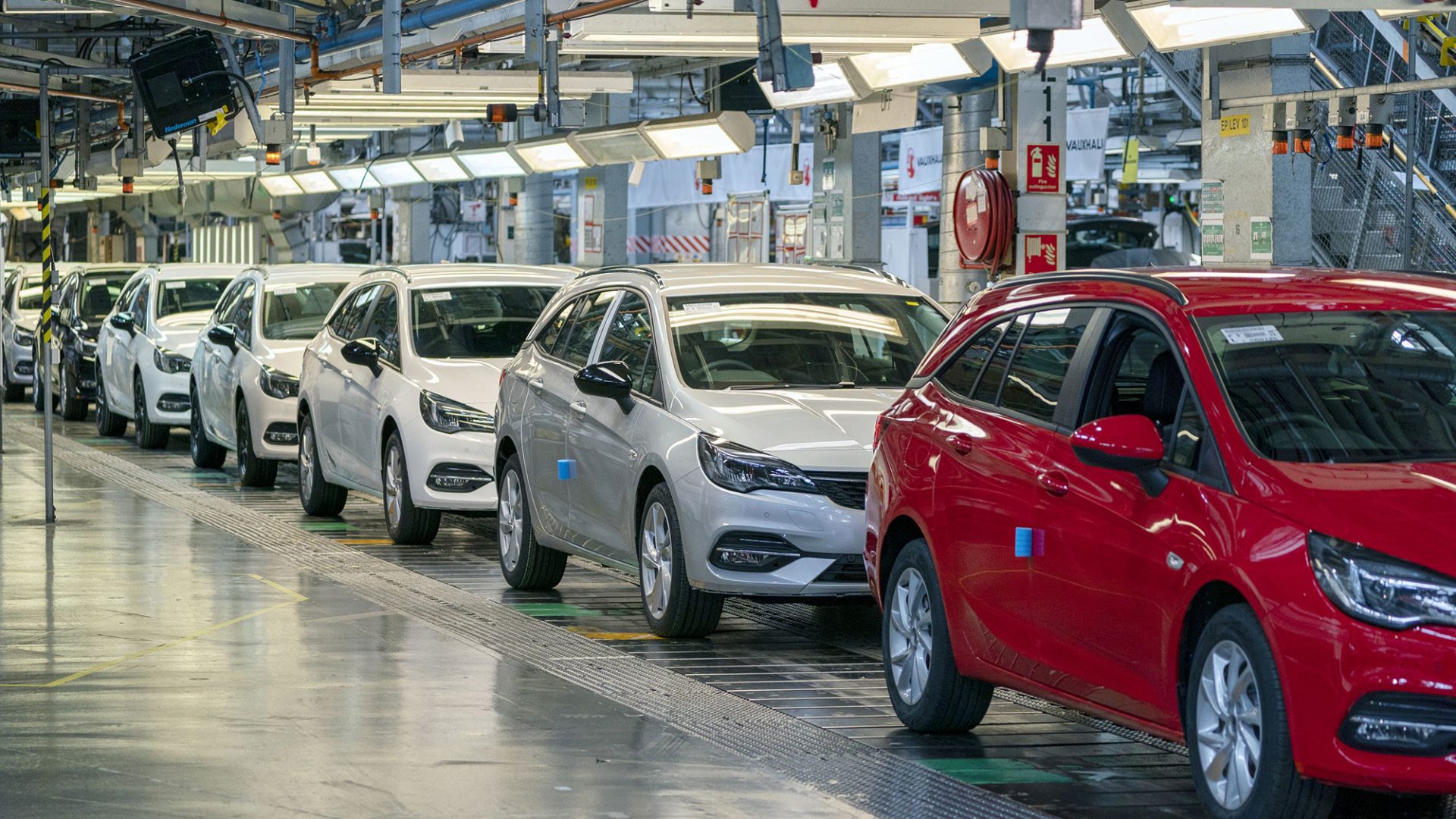Car manufacturing in the UK saw its strongest month of growth for 2023 in September, figures out today show.
The SMMT said 88,230 vehicles left factory lines – 25,105 more than in September 2022, which is a 39.8% rise.
It was a triple month of success as it was also the best September since 2020 when 114,732 vehicles were made, meaning 659,901 cars have been produced to date – a 14.9% year-on-year increase.
Production for the UK was up by 65.9% to 23,503 cars, while exports rose by 32.2% to 64,727.
The EU continues to be Britain’s leading trading partner, with 37,563 UK-built cars shipped to the bloc in the month – up 46.1% on last September and comprising 58% of the sector’s overseas trade.
The SMMT said the volume of exported British cars had risen by 16.3% to 524,973 units since January, with electrified vehicles accounting for more than a third (37.5%) of them – up from 26.4% a year ago.
And it stressed the importance of keeping the tariff-free trade that is set out in the UK-EU Trade Co-operation Agreement (TCA).
It warned that it was under threat from January 2024, with the arrival of tougher rules of origin for batteries.
The SMMT said the rule changes threatened the competitiveness of UK exports to the EU and EU imports to the UK.
Failure to comply will mean a 10% tariff, which the SMMT said if fully passed on would raise the average cost of UK-built battery electric vehicles (BEVs) by £3,600 in Europe, while EU-made BEVs sold in the UK would see an average price hike of £3,400.
But if there was a three-year delay, that would maintain competitiveness, supporting British and European manufacturers, said the SMMT, adding that it was readily achievable via the existing TCA framework without any need for a formal renegotiation.
SMMT chief executive Mike Hawes said: ‘A particularly strong period of car-making is good news for the UK, given the thousands of jobs and billions of pounds of investment that depend on the sector.
‘With countries around the world shifting to zero-emission motoring, Britain is well placed to be a global EV manufacturing hub if the investment and trading conditions are right.
‘Given the increasing importance of electrified car production, the first and urgent step is for the UK and EU to agree to delay the tougher rules of origin requirements that are due imminently.
‘This would give the necessary breathing space for automotive sectors on both sides of the Channel to scale up gigafactories and green supply chains, both of which are essential for a stable, long-term transition.’
What the industry says
Growth in EV manufacturing is hugely positive
The UK manufacture of electric vehicles is up again, putting Britain in a solid position to become a leading EV manufacturing hub, particularly for EU countries as Britain’s leading trading partners.
While exports of EVs are strong, up considerably from last year, there’s appetite amongst consumers in the UK to switch to EVs, too.
The growth in EV manufacturing is hugely positive for the automotive industry, but more broadly must be met with increased investment in infrastructure to get people to make the switch
John Veichmanis, CEO, Carwow
Customers’ worries over affordability need considering
Whilst the economic and political landscape remains uncertain, a significant rise in production levels shows manufacturing has remained resilient.
The government’s five-year delay of the initial 2030 ban on new petrol and diesel vehicles may have put some manufacturers in a challenging position, and navigating changes in legislation and consumer demand means many will have to adapt their plans to keep the UK’s automotive output on track to return to pre-pandemic levels.
Manufacturers will also need to consider customers’ concerns over affordability whilst thinking about the long-term transition away from diesel and petrol vehicles.
Lisa Watson, director of sales, Close Brothers Motor Finance
Optimistic growth levels may be short-lived
These figures paint an impressive and encouraging picture of growth in the UK, particularly as we see a massive increase in EV output.
While the uplift of electric vehicle manufacturing may not be a surprise considering the government’s zero-emission vehicle (ZEV) mandate fast approaching, this will come as good news for industry giants like Stellantis, Nissan and BMW Group who are investing heavily in the UK as a base for their EV operations.
However, with sizeable increases in production for UK and overseas markets, it won’t just be the ZEV mandate on the minds of car makers as we head towards the new year.
Tougher rules with Europe around battery production may be a concern, threatening to slow down EV manufacturing from January.
Unless the government can strike a new deal with the EU fast, manufacturers may fear September’s optimistic growth levels could be short-lived.’
Mark Tisshaw, editor, Autocar


































